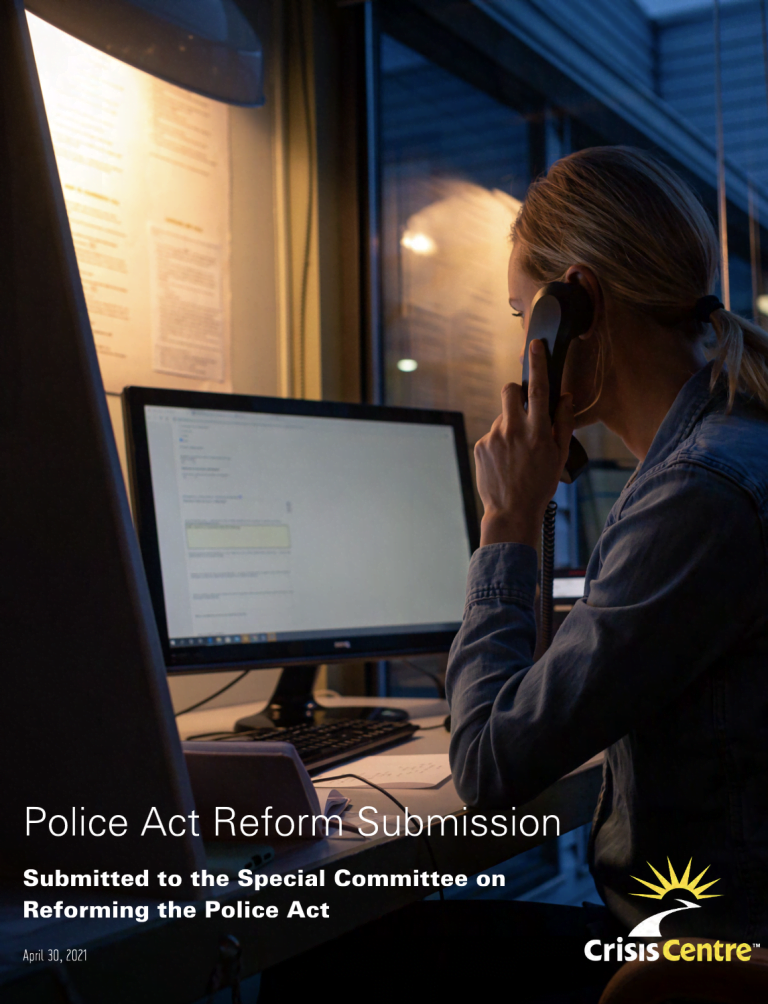The minister must ensure that an adequate and effective level of policing and law enforcement is maintained throughout British Columbia.
Recommendation 1:
In order to ensure adequate and effective policing and law enforcement, the Ministry must have data to show how policing and law enforcement is performing related to mental health crises. If there is a crisis healthcare gap marked by police over-involvement in mental health crisis, it will appear as:
- High rates of police involvement in people accessing first-time mental health support
- High rates of arrest and/or incarceration of individuals with mental health challenges,
- High rates of police apprehending individuals for psychiatric evaluations in which the individual does not meet the criteria for hospital admission
We ask that police collect and share disposition data on the outcomes of mental health calls. Since poverty, discrimination and trauma align with mental health issues, we echo CMHA’s recommendation that police forces in B.C. collect, analyze and disclose race-based and other demographic data to identify systemic issues underpinning police response to people in crisis.
